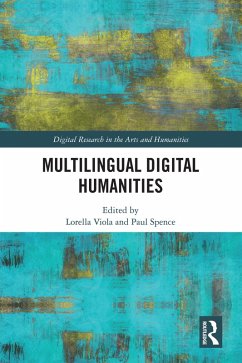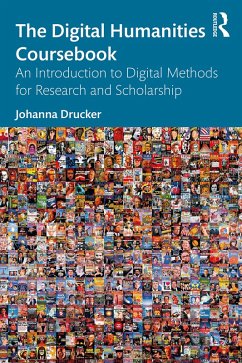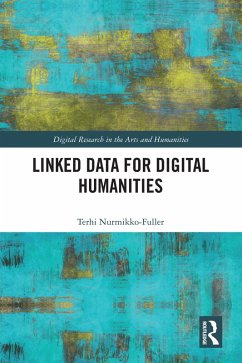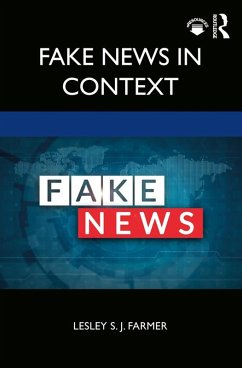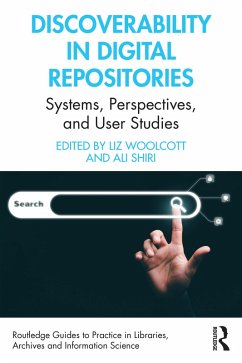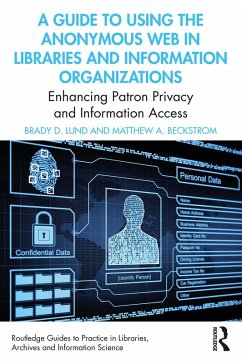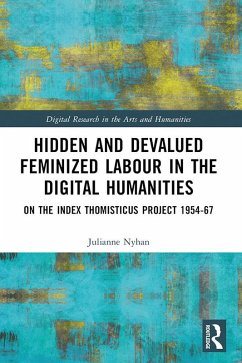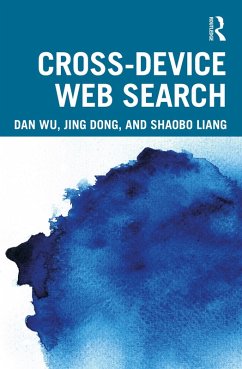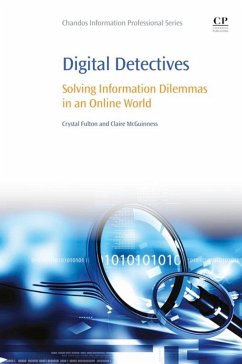
Multilingual Digital Humanities (eBook, ePUB)
Versandkostenfrei!
Sofort per Download lieferbar
42,95 €
inkl. MwSt.
Weitere Ausgaben:

PAYBACK Punkte
21 °P sammeln!
Multilingual Digital Humanities explores the impact of monolingualism-especially Anglocentrism-on digital practices in the humanities and social sciences.The volume explores a wide range of applied contexts, such as digital linguistic injustice, critical digital literacy, digital learning, digital publishing, low-resourced, minoritised or endangered languages in a digital space, and multilingual historical intertextuality. These discussions are situated within wider work on language technologies, language documentation and international (in particular European) language-based infrastructure cr...
Multilingual Digital Humanities explores the impact of monolingualism-especially Anglocentrism-on digital practices in the humanities and social sciences.
The volume explores a wide range of applied contexts, such as digital linguistic injustice, critical digital literacy, digital learning, digital publishing, low-resourced, minoritised or endangered languages in a digital space, and multilingual historical intertextuality. These discussions are situated within wider work on language technologies, language documentation and international (in particular European) language-based infrastructure creation. Drawing on both primary and secondary research, this four-part book features 13 diverse case studies of infrastructural projects, pedagogical resources, computational models, interface building, and publishing initiatives in a range of languages, including Arabic, French, Russian, Portuguese, Italian, German, Spanish, Bengali, Hindi, Malayalam, and Tamil. All the debates are contextualised within a wider cultural frame, thus bridging the gap between the linguistic focus of the multilingual initiatives and wider discussion of cultural criticism in DH.
Multilingual Digital Humanities recognizes the digital as a culturally situated and organic multilingual entity embedding past, present, and future worlds, which reacts to and impacts on institutional and methodological frameworks for knowledge creation. It is essential reading for students, scholars, and practitioners working in digital humanities and digital studies.
The volume explores a wide range of applied contexts, such as digital linguistic injustice, critical digital literacy, digital learning, digital publishing, low-resourced, minoritised or endangered languages in a digital space, and multilingual historical intertextuality. These discussions are situated within wider work on language technologies, language documentation and international (in particular European) language-based infrastructure creation. Drawing on both primary and secondary research, this four-part book features 13 diverse case studies of infrastructural projects, pedagogical resources, computational models, interface building, and publishing initiatives in a range of languages, including Arabic, French, Russian, Portuguese, Italian, German, Spanish, Bengali, Hindi, Malayalam, and Tamil. All the debates are contextualised within a wider cultural frame, thus bridging the gap between the linguistic focus of the multilingual initiatives and wider discussion of cultural criticism in DH.
Multilingual Digital Humanities recognizes the digital as a culturally situated and organic multilingual entity embedding past, present, and future worlds, which reacts to and impacts on institutional and methodological frameworks for knowledge creation. It is essential reading for students, scholars, and practitioners working in digital humanities and digital studies.
Dieser Download kann aus rechtlichen Gründen nur mit Rechnungsadresse in A, B, BG, CY, CZ, D, DK, EW, E, FIN, F, GR, HR, H, IRL, I, LT, L, LR, M, NL, PL, P, R, S, SLO, SK ausgeliefert werden.




